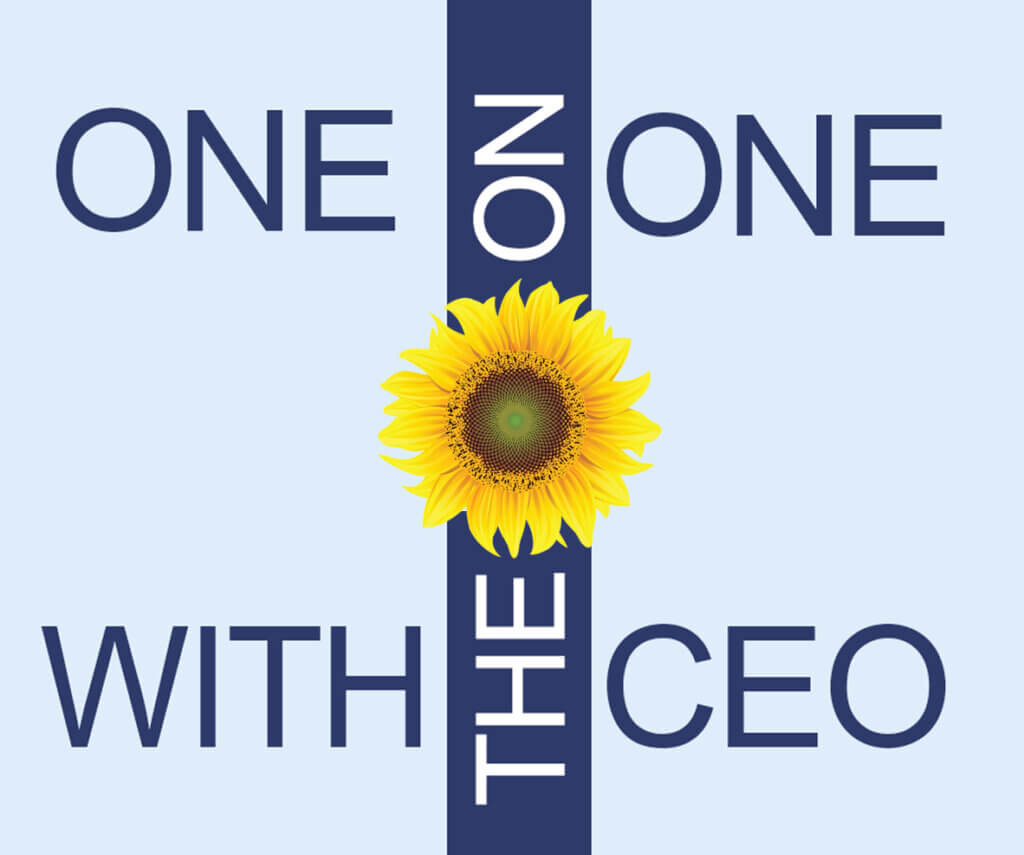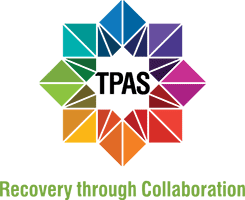
In honor of World Mental Health Day in early October we hosted an important conversation with our Chief Clinical Officer, Johnnie Featherston, MA, LCMHC. The focus was on mental health as a basic human right. We hope you enjoy the series, “ONE on ONE with the CEO.” Be sure to subscribe to our YouTube channel so you don’t miss any of them.
“…we have a lot more data now that tells us that not only is food medicine, but that supplements can help alleviate the inflammatory processes that we now know are a very big factor in folks developing these side Diagnoses away from their emotional health condition. So, type two diabetes, cardiovascular disease…these are all inflammatory processes, and lo and behold…now they know that emotional {mental} health conditions are also inflammatory in nature.”
Mary Strickland Kreider, MS, CIHC, CTTS
Integrative Wellness Consultant
Read the entire transcript below:
[ERIC] Today I am joined by Mary Kreider. Mary Kreider has been with CooperRiis for 20 years. In the 20 years that we’ve been open, Mary has been a big part of our healing community. She served for many years as the integrative health director here at CooperRiis, which means she was a fundamental and still is a fundamentally important person when it comes to nutrition and diet and meal planning and the use of supplementals and all that important stuff that is a part of our overall approach to treatment here at CooperRiis.
Mary, can you talk to us a little bit about the relationship between good nutrition and mental health recovery and how you’ve seen it play out over the years?
The Relationship Between Nutrition and Mental Health Recovery
[MARY] Yeah. Well, briefly, I would say that 20 years ago there was very little known about this, so we’ve been at the cutting edge, I guess you would say, from the very beginning of looking at diet and supplements as part of a recovery process. Food is medicine, which has become, you know, quite the thing in terms of research right now.
So, Lisbeth was, when she and Don hired me- that was all she wanted to talk to me about basically, to let me know that she felt very strongly that food and our diet and how we resource food organic locally, and help people learn to eat something other than fast and processed foods was going to play an important role in our success and recovery.
And that information, her belief around that, came from an understanding statistically, but not scientifically yet, that our population was more prone to metabolic syndrome, which leads to type two diabetes, heart disease, and cardiovascular stuff. And nobody knew why- nobody understood why that was true. But what we did know was that supporting the person with good nutrition and possibly supplements would help them avoid this, going down this path, which was, at the time… the statistic was that our population had a 20-year shorter lifespan than a person without an emotional health condition.
And, it was more than what you would imagine- it was physiological of the kinds of diseases that people would get as a result of their condition. So fast forward to 2023 and we have a lot more data now that tells us that not only is food medicine, but that supplements can help alleviate the inflammatory processes that we now know are a very big factor in folks developing these side Diagnoses away from their emotional health condition. So, type two diabetes and cardiovascular disease… are all inflammatory processes, and lo and behold…now they know that emotional health conditions are also inflammatory in nature. So, there is a very good connection there. The third connection is the gut microbiome. So, the good gut bacteria and the bad gut bacteria play a role in the inflammatory process and how our brains work and how we, do just physiologically- how well we recover physiologically.
So, folks that come to us with their issues around food are many, from disordered eating processes to having just lived on a low budget or just wanting only what was easy, meaning fast food and processed foods. And those foods are the very foods that have the inflammatory nature that I was talking about before… not to mention a lack of phytonutrients and basic vitamins and minerals that one needs to be healthy.
So, learning how to cook has been a big part of our processes for as long as I can remember. I mean, maybe not in the first four or five years when we were just kind of getting our “everything” together on our airplane here that we were flying. We didn’t have cooking classes in the first four or five years, but after that we did, we always did. And they took place in different ways, and we always made them person-centered. Our group participated in what they wanted to learn how to cook for themselves, because we know that cooking is empowering. We know that it can help alleviate this tendency to Grub Hub or stop at McDonald’s or just pick up stuff in a box, which doesn’t have the kinds of nutrients that folks need to have really healthy lives. So that’s been another prong.
Residential Feedback
[ERIC] I want to keep this going. I’m curious over the years what have residents said to you? What has the feedback been from members of our community about this?
[MARY] Oh, varied, as you can imagine from ‘…why can’t we eat hot dogs and hamburgers and French fries every day and have that as an option…’ to… to ‘…gosh, I love the food… you guys make the best food…I never thought that healthy food could taste this good…’ So, it has been really important to us that we have good chefs in our kitchen and that they know how to take a Mediterranean-based diet and make it delicious for everybody. So, there’s been a wide variety of that, but my feedback afterward, and I keep in touch with residents, they keep in touch with me over time, for a time after they leave, was like, ‘…the diet’s the best thing- I’m so glad I learned how to cook. I’m so happy I ate this way. I feel so much better. And in the process of change, and this is a chemical process, change is, folks who are with us, they still crave- they crave sugar, they crave processed simple carbs- and we just try to baby step our way through this with them on an individualized, personalized basis, one on one.
At least that’s the way I did it.
“Psychiatry wasn’t immediately accepting of this, and it was a little challenging to talk my way into the psychiatrist’s office and suggest that we could use Omega-3 supplements, fish oil that everybody now knows is very helpful. And a ‘do no harm’ status…”
Mary Strickland Kreider, MS, CIHC, CTTS
Integrative Wellness Consultant
[ERIC] Okay. So, in addition, since I’ve been here- I’ve been here about five years and I always hear- and I always talk about how nutrition and how we do food is a partner with the whole recovery experience for people that come here- is that food is a really big deal and how we do it is a big deal. And you’ve been a part of it from the very beginning, but you also are very involved in the supplement world here. Can you talk about that a little bit?
How Supplements Play a Role in Mental Health Healing
[MARY] Yeah, that started the same way as with the food – a lack of understanding – we saw the data, we saw what it looks like, right? But we didn’t have the science to back our desire to use just a few supplements, in the beginning, to help support a person in their recovery from multiple aspects: from lack of vitamins to things like B complex, fish oil… fish oil at the time, 20 years ago, was known to be those omega 3 fatty acids as being anti-inflammatory, not just cardiovascular, but also good for mental health.
Psychiatry wasn’t immediately accepting of this, and it was a little challenging to talk my way into the psychiatrist’s office and suggest that we could use Omega-3 supplements, fish oil that everybody now knows is very helpful. And a ‘do no harm’ status…so that became my focus as I worked with my team and we talked about it a lot, was that what we wanted to demonstrate was there was no harm involved here.
And there was some evidence for safety- not safety, but efficacy. We knew that they were safe, we never used anything that we didn’t know wasn’t safe and that there wasn’t evidence for efficacy. Is there the gold standard always? No… of research, because research is really hard to come by because there’s no money in it.
It’s not like pharmacology, pharmacological ingredients, where you can get somebody to support you financially to do the research. Supplements are a little bit different, and they can’t be patented because they’re a natural substance. And because they’re a natural substance, we feel like they’re safe.
So, we just want to know that there is a do-no-harm status and that there is evidence for use. And, more and more over the years, this has grown as a big- I now have two, three different databases- that are evidence-based that we can go to… to find research. Not everything, but a whole lot of stuff.
[ERIC] Before we end, what are a couple of the most common supplements that you see out there? And what are some of the benefits that you’re seeing? And of course, every resident is involved in the decision-making.
Inflammation and the Benefits of Supplements
[MARY] Yes. The residents are involved in decision-making along with the psychiatrist. I recommend it- but the psychiatrist has to approve, right?
And we have standing orders for fish oil, B-complex, and probiotics, which we know are involved in this gut microbiome process that is inflammatory. And then on the side of that, the residents can choose those as soon as admission. We give them information about it and most of them accept them.
And then I look at sleep because we don’t want to add more pharmaceuticals on top of pharmaceuticals if we don’t have to, right, and the less sedating kinds of meds, the better. So, there are a lot of supplements that can help with sleep onset, and waking up in the middle of the night, that are not actually going to give somebody a sleep hangover in the morning, so they can get up and get to their crews.
And there are also those that serve as anxiolytics. So instead of benzodiazepines or for people who have just recently come off them, we have supplements that can address the anxiety piece. And also, I think one of the things that I love are supplements that address the side effects of certain medications, and the side effects of metabolic syndrome that a lot of our folks unfortunately find themselves with at some point in time.
And those supplements can help with those side effects bringing down cholesterol and helping with reducing inflammation. So inflammatory processes are, for me, like a number one- that’s my number one thought process, both with diets and with supplements to reduce inflammation for a number of reasons.
[ERIC] This has been great. And I know this is really the tip of the iceberg. We could go on and on about this, but we don’t have time today, but thank you, Mary. Thank you for coming here and doing your thing. And until next time, thank you, everybody.
View the video on our YouTube channel here










